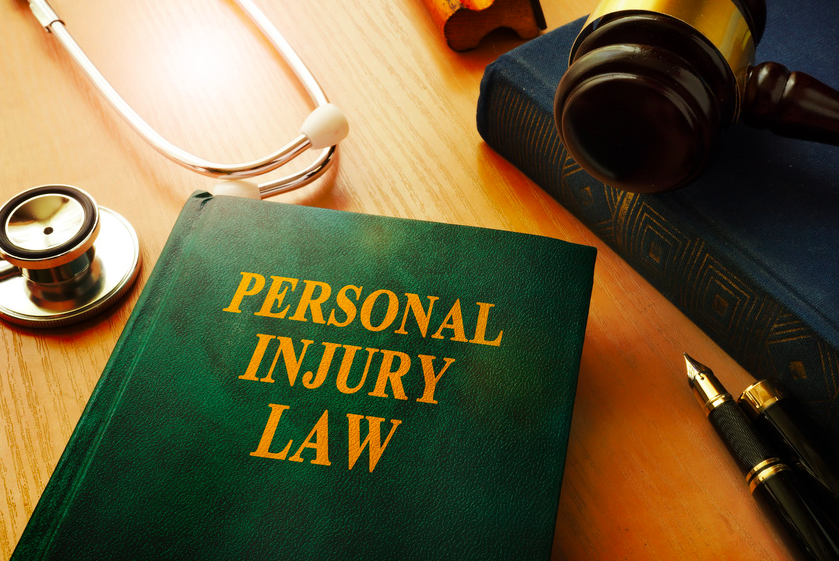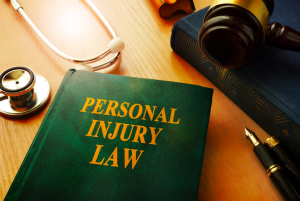Scranton Personal Injury Lawyer: Navigating the Legal Maze After an Accident

Personal Injury Lawyer
Are you navigating the complexities of personal injury law in Scranton? Discover the crucial steps, from choosing the right lawyer to understanding damages. This comprehensive guide prepares you for the legal journey, ensuring informed decisions and fair compensation.
Introduction:
Personal injury cases are like intricate puzzles, each with unique pieces and challenges. The aftermath of such affairs can be overwhelming, whether it’s a car accident, a slip and fall incident, or a product liability case. This article aims to serve as a thorough guide to navigating the legal maze after an accident, emphasizing the role of a Scranton personal injury lawyer in ensuring justice and fair compensation.
Understanding Personal Injury Law:
Personal injury law covers many cases where a person suffers harm due to someone else’s negligence or intentional actions. From physical injuries to emotional distress, understanding the definition and scope of personal injuries is crucial. This knowledge empowers individuals to recognize their rights in various situations, setting the stage for informed decision-making.
When to Consult a Personal Injury Lawyer:
Navigating the aftermath of an accident is a time-sensitive process, and knowing precisely when to consult a personal injury lawyer is pivotal for the success of your case. Your decisions in the immediate aftermath can significantly impact the resilience of your claim and your ability to secure fair compensation.

Immediate Actions After an Accident:
The clock starts ticking at the point an accident occurs. Whether it’s a car crash, a slip and fall incident, or any other type of accident, taking immediate action is crucial. First and foremost, seek medical attention for any injuries sustained. Not only is this vital for your health, but it also establishes a documented record of your injuries, which can be instrumental in your case.
Simultaneously, gather evidence at the accident scene. This includes taking photographs of the surroundings, any damages, and the vehicles involved. Collect contact data from any witnesses who may have observed the incident. The more detailed your documentation, the stronger your case becomes.
Understanding the Statute of Limitations:
Another critical factor in determining when to consult a personal injury lawyer is understanding the statute of limitations. This refers to the legal timeframe within which you must file a lawsuit. Laws of regulations vary by state and the type of injury, ranging from one to six years.
Please file within this timeframe to ensure your right to seek compensation. Consulting a personal injury lawyer early on lets you know these time constraints and allows the necessary preparations to be made well within the stipulated period.
The Importance of Prompt Legal Action:
Prompt legal action serves multiple purposes. Firstly, it allows for a thorough investigation while the evidence is fresh and the witnesses’ memories are vivid. Delaying legal action can result in losing or degrading critical evidence, making it harder to establish liability.
Moreover, initiating legal proceedings promptly sends a solid message to the opposing party and their insurance company. It demonstrates your commitment to pursuing a fair resolution and can potentially expedite the negotiation process. In the world of personal injury law, being proactive can be a game-changer.
Consulting a Personal Injury Lawyer: A Strategic Move:
Consulting a personal injury lawyer should be one of your first actions after seeking medical attention. Many reputable personal injury lawyers offer free initial consultations, allowing you to be concerned about the specifics of your case without financial commitment.
During this consultation, you’ll have the opportunity to present the details of the accident, discuss your injuries, and gain insights into your case’s potential strengths and challenges. The lawyer, in turn, can guide the following steps, including whether pursuing legal action is in your best interest.
Choosing the Right Personal Injury Lawyer:
Selecting the right lawyer is a decision that can shape the outcome of your case. Beyond legal expertise, qualities like empathy, communication skills, and a track record of success are essential. Thorough research, including reading testimonials and seeking recommendations, ensures you entrust your case to a professional with your best interests at heart.
Initial Consultation: What to Expect:
The initial consultation is the starting point of your legal journey. It’s a two-way street where you and the lawyer assess each other. Be prepared to share details about the accident, your injuries, and any available evidence. The lawyer, in turn, will evaluate the potential merits of your case, helping you understand the viability of pursuing legal action.
Navigating the Legal Process:
Once you decide to proceed, the legal process unfolds. Filing a lawsuit initiates formal proceedings, and the discovery phase follows, where both parties exchange information and evidence. Understanding these steps prepares you for the journey ahead, ensuring you confidently navigate the legal intricacies.
Negotiation and Settlements:
Negotiation is an art form in personal injury cases. Skillful negotiation can lead to a fair settlement without needing a trial. Factors such as the extent of your injuries, medical expenses, and the impact on your life are considered. Your lawyer’s ability to negotiate effectively becomes paramount in securing the compensation you deserve.
Going to Trial: What You Need to Know:
While many cases settle, some proceed to trial. Preparing for this scenario involves understanding the court process, presenting evidence, and facing cross-examination. Your lawyer’s trial experience becomes invaluable in presenting a compelling case before a judge and jury.
Understanding Damages:
Compensation in personal injury cases involves various types of damages. Economic damages cover tangible losses like medical expenses and lost wages, while non-economic damages address intangible losses such as pain and suffering. Calculating these damages requires a nuanced understanding of the impact of the injury on your life.
Common Personal Injury Cases:
Car accidents, slip and fall incidents, and product liability cases are prevalent in personal injury law. Each case comes with its unique challenges. Understanding how these cases are typically handled provides insights into what to expect during the legal process.
Legal Fees and Costs:
The financial aspect of hiring a personal injury lawyer is often a concern. Most personal injury lawyers work on a contingency fee basis, implying they only get paid if you win your case. Transparency in billing and understanding the fee structure beforehand ensures no surprises.
Staying Informed: Your Role in the Case:
Active participation in your case is crucial. Regular communication with your lawyer, staying updated on developments and providing any requested information contribute to the overall success of your case. Being an engaged client ensures you are well-informed and can make informed conclusions throughout the legal process.
Importance of Documentation:
The strength of your case often hinges on documentation. Keeping detailed records of the accident, medical treatment, and related expenses strengthens your position. Additionally, the role of evidence, such as witness statements and photographs, must be balanced in building a compelling case.
Emotional Impact: Dealing with Stress:
Beyond the legal complexities, personal injury cases take an emotional toll. Dealing with the aftermath of an accident, coping with injuries, and navigating the legal process can be overwhelming. Establishing coping strategies and relying on a support system are essential elements in managing the stress associated with a personal injury case.
Conclusion:
In conclusion, seeking legal help after a personal injury is not just a choice; it’s a necessity. The journey may be challenging, but with a Scranton personal injury lawyer, you can confidently navigate the maze. We’ve explored critical aspects of personal injury law, from understanding the legal process to dealing with the emotional impact. Remember, your choice of legal representation can make all the difference in securing the compensation you deserve.




